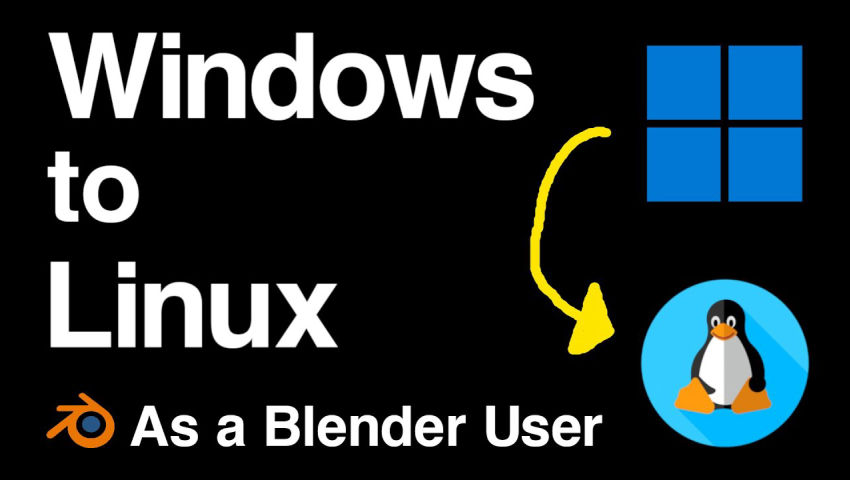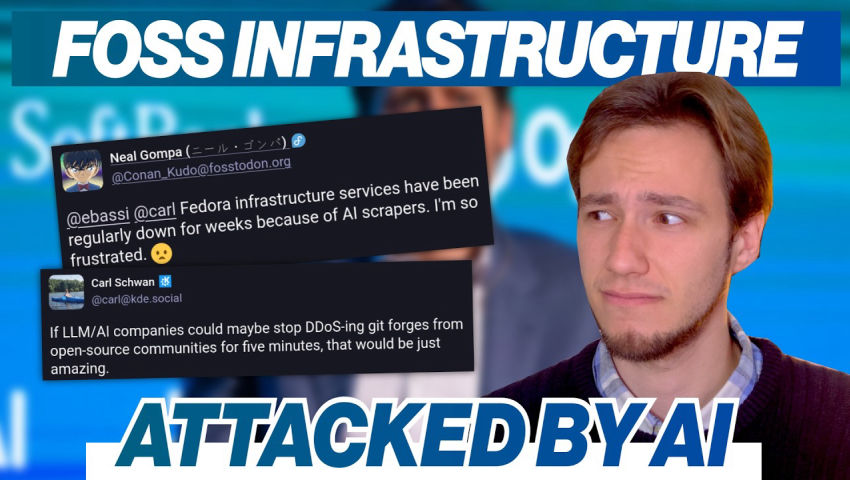Some weird, German communist, hello. He/him pronouns and all that. Obsessed with philosophy and history, secondarily obsessed with video games as a cultural medium. Also somewhat able to program.
- 21 Posts
- 27 Comments

 2·8 days ago
2·8 days agoSounds like the app is indeed quite a mess, then, unfortunately :/

 4·8 days ago
4·8 days agoAh, yeah, it’s my own PeerTube instance, using the “share” function gives you a link to the instance you are currently on, not the original one. I use the PeerTube companion add-on to redirect PeerTube links to my own instance automatically (where I can easily interact with my own account), so always linking to the original instance can get a bit finnicky for me - and usually, it shouldn’t be a problem. (Hadn’t come up before)
But now that you bring it up - I gues “usually” might not include app interactions? 🤔

 2·8 days ago
2·8 days ago!tf2weaponideas@lemmy.zip - just my lazy ass making it easier to link myself to the community

 2·9 days ago
2·9 days agoOh, that would be a good way to use it then. Other than that, the official app isn’t too bad, from my cursory glance.
EDIT: Although, I guess your problem may still happen, if the issue was actually unrelated 🤔

 4·9 days ago
4·9 days agoYeah, I think the official android app is pretty bad, sadly, from all I have heard. Not all the devs fault - I heard they had problems with apple/google app store rules, where they were under extra scrutiny to only allow videos from a “vetted and moderated search index” or something to be allowed on their app. (ludicrous, IMO, that their project of all projects suddenly got scrutinised to that degree, compared to other shit on their stores)
I think there were some decent FOSS app alternatives on F-Droid, but since I myself am 99% on desktop or use just vanilla Firefox mobile, I am sadly not a good person to recommend apps myself.

 8·10 days ago
8·10 days agoI think that is utlimately valid - although I think the other options are all coming with their own problems. You will then have to instead live with the interests of tech corporations (including nonprofits who ultimately need funding) and advertisers collecting your data, whose interests will ultimately not be much less malignant - or small free software projects of a sometimes quite limited scope. The latter, I think, is also a valid niché, but will leave the overall standards of the internet to corporate interests.
Considering how the CEO here acts for Brave, in my opinion, this is not simply about him being an asshole or being politically questionable. To me - everything about him screams “grifter taking advantage of people’s legitimate concerns” - and he has a material interest in your data as well. Brave always felt to me like trying to sell and market privacy instead of proving to me, in their fundamentals, that they actually have my interests in mind.
Which is why I, personally, do not really understand choosing Brave above LibreWolf (or Tor Browse, occasionally), if privacy is your #1 priority.

 2·10 days ago
2·10 days agoOh, yes, it wasn’t a direct answer, also, I’m not the person you answered to. Ultimately, my comment was more meant as an overall addition to the discussion, building on the idea of what a solution to:
Which I think is one of the big issues with OSS projects - many are based around a very small number of people being motivated to work on something for free. And it dies if that stops.
might be.
But as answers to your two points. #1 - I have no idea where they got that from, myself #2 - I think you answered that one yourself rather well, and I wanted to build on that one.
Sorry if that was confusing, my brain is also good at confusing myself at times, can’t imagine how that is for others at times.

 41·10 days ago
41·10 days agoI can somewhat understand the overall criticism, because Librewolf - as far as my understanding goes - would be in trouble without the work being done on the code upstream.
Personally, I know that this does not exist (yet), and to some people that put privacy above everything else with a more libertarian slant, this might sound like the worst option imaginable, but my “dream” way to handle it within the current economic system would be:
Have an open source, FOSS base, web-engine and all, developed with public funds similar to public broadcasting in many countries (Bonus if carried by international organisations instead of just national. Think a UN institution like UNESCO or WHO, but focused on making the internet accessible neutrally and to all). On top of that code, projects that want to put privacy above all else could still feasibly built projects like LibreWolf (an even Brave), relying somewhat comfortably on secure fundamentals.
I know, sounds like a dream, which it is at this point. But every other solution within the current economic status quo I personally thin of, I see no chance of enshittification not always encroaching and creating crises, if not outright taking over.

 19·11 days ago
19·11 days agoOh, just to not accidentally create the wrong impression - that’s not me, I just shared the video and didn’t want to editorialise the title. If you want to give them your message (that I think is important, indeed) - you can follow the link and should be able to comment with many different activitypub account options (PeerTube itself, Mastodon, etc.) - sadly, I don’t think Lemmy is possible yet, because its design isn’t user-centric but content-centric, and it lacks some of those AP-capabilities.

 91·11 days ago
91·11 days agoAnother classic:


 10·14 days ago
10·14 days agoYeah, that one really isn’t Linux’s fault either, and both on Linux and Windows, it’s always “exciting” to see which dev used which wild, new scheme for their config/save files.

 14·14 days ago
14·14 days agoSo, a few years back, when a good friend of mine tried out Linux mint, one of the main reasons he didn’t stick with it wasn’t even compatibility or anything (although he probably would have switched to a rolling release as someone who values cutting edge updates). But what ultimately made him return to Windows was something, I have been scratching my head on how to best handle it: The file system structure ultimately being too much of a change.
Now, of course, if you are used to it, I wouldn’t really call it better or worse - definitely more suited to what Linux ultimately is. But stuff like, “Where are the save games of my paradox games? Why is so much stuff in my user directory? Why is there no unified directoy for all the stuff I installed (including everything they use), like Program Files, but everything is scattered all around into different directories? Why was the path to my save games hidden in a dotfile-folder?” were examples of hurdles, where the current answer seems to be “you just have to get used to it”.
Now, I am not pleading to change the standard, there’s good reasons for it. But are there good transitioning guides from Windows to Linux, that do a good job at explaining the structure of the file system? Because I remember, myself, only really getting used to it months into my Linux journey all those years ago.

 6·15 days ago
6·15 days agoThat’s what I usually liken it to

 3·17 days ago
3·17 days agoMakes sense, it’s most likely an ongoing arms race - I’m probably coasting under the radar a bit from running an instance with effectively only 3 people to target at the moment.

 9·17 days ago
9·17 days agoSome admins have been developing and sharing solutions, from regex filters to going down into the databases itself.
For my small instance and personally, I haven’t seen any new messages in a while now, after adding this regex to the slur filter mechanism:
(.*(\n)*Hi.*[nN]icole.*[fF]ediverse [cC]hick(.|\n)*)Sadly my brain is blanking which instance admins I should credit for that, but it was shared around somewhere.

 19·17 days ago
19·17 days agoWow, you’re right of course. I completely forgot kwrite still existed, tbh.

 781·17 days ago
781·17 days agoI genuinely do a lot of coding in Kate, the standard KDE editor. It’s enough to do a lot of things, has highlighting, and is more than enough when you just need a quick fix.
I am also still using nano when editing stuff in the terminal. Please, don’t judge me.

 121·17 days ago
121·17 days agoI wouldn’t be surprised if that is true outside the US as well. People that actually (have to) work with the stuff usually quickly learn, that its only good at a few things, but if you just hear about it in the (pop-, non-techie-)media (including YT and such), you might be deceived into thinking Skynet is just a few years away.

 4·18 days ago
4·18 days agoIndeed, although I will concede, that the tariffs are designed to hit some areas more directly, and others more indirectly. But this will impact the economy as a whole, with financial capital most likely in the best position to gain (by potentially buying up assets from other sectors for cheap when they fail).























Sounds like an easy way to do unproportional damage to projects with a bit of location spoofing.